Uncategorized
-
 Life
LifeInfants may laugh like some apes in their first months of life
Laughter seems to change over life’s early months, perhaps influenced by the unconscious feedback parents give when they play with their little ones.
-
 Earth
EarthClouds affected by wildfire smoke may produce less rain
As wildfires become more frequent in the western United States, these low-rain clouds could exacerbate drought, fueling more fires.
-
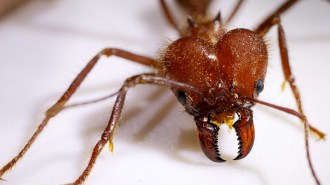 Animals
AnimalsHow metal-infused jaws give some ants an exceptionally sharp bite
Some small animals make cuts, tears and punctures that they couldn’t otherwise do using body parts reinforced with metals such as zinc and manganese.
By Jake Buehler -
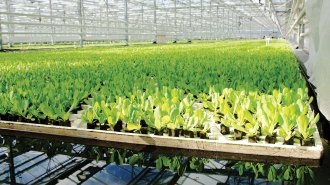 Agriculture
AgricultureCold plasma could transform the sustainable farms of the future
Physicists have been working on ways to use the power of plasma to boost plant growth and kill pathogens.
-
 Chemistry
ChemistryA pinch of saturated fat could make tempering chocolate a breeze
Adding a small amount of fatty molecules to cocoa butter could simplify the labor-intensive tempering process to create melt-in-your-mouth chocolate.
By Nikk Ogasa -
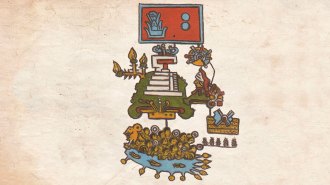 Earth
EarthThis pictogram is one of the oldest known accounts of earthquakes in the Americas
The Telleriano-Remensis, a famous codex written by a pre-Hispanic civilization, describes 12 quakes that rocked the Americas from 1460 to 1542.
-

-

What can science tell us about living a good life?
Editor in chief Nancy Shute discusses what science can tell us about finding fulfillment, even in disastrous times
By Nancy Shute -
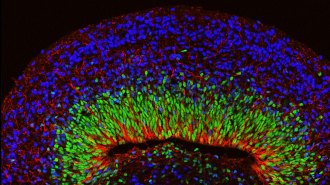 Health & Medicine
Health & MedicineHow personalized brain organoids could help us demystify disorders
Personalized clusters of brain cells made from people with Rett syndrome had abnormal activity, showing potential for studying how human brains go awry.
-
 Physics
PhysicsNew ‘vortex beams’ of atoms and molecules are the first of their kind
Twisted beams of atoms and molecules join other types of corkscrew beams made of light or electrons.
-
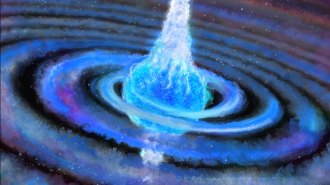 Cosmology
CosmologyAstronomers may have seen a star gulp down a black hole and explode
It took sleuthing through data collected by a variety of observatories to piece together the first firm evidence of a theorized cosmic phenomenon.
By Adam Mann -
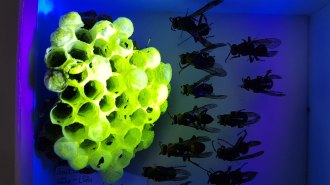 Animals
AnimalsSome wasps’ nests glow green under ultraviolet light
Some Asian paper wasps’ nests fluoresce so brilliantly that the glow is visible from up to 20 meters away.
By Nikk Ogasa